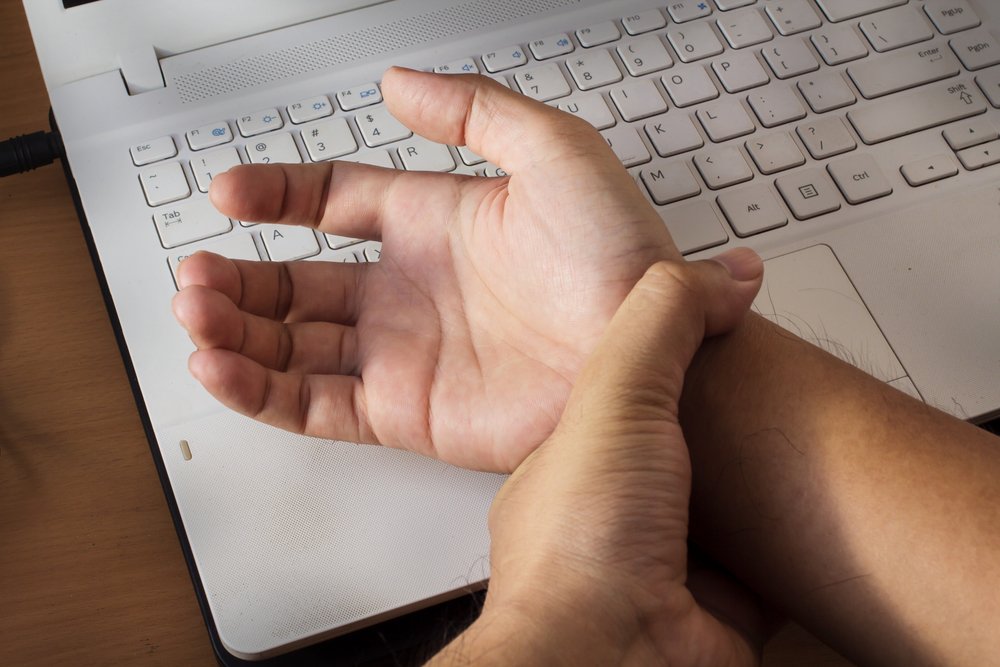The median nerve if gets pressure it may cause carpal tunnel syndrome. On the palm side of your hand, the carpal tunnel is a tiny conduit enclosed by ligaments and bones. Numbness, tingling, and hand and arm weakness can occur when the median nerve is pinched.
Carpal tunnel syndrome is caused by the architecture of your wrist, health issues, and maybe repeated hand motions. Numbness and tingling are frequently relieved with proper therapy, and hand and wrist function is usually restored.

Symptoms
Symptoms of carpal tunnel syndrome usually appear gradually and include:
-
Numbness or tingling - Numbness and tingling in the hands or fingers are possible symptoms. The thumb, index, middle, and ring fingers are usually afflicted, but not the little finger. These fingertips may feel like they're getting an electric shock. The sensation could travel up your arm from your wrist. These symptoms can happen when you're driving, talking over phone, or reading the newspaper, or they can wake you up. Many people try to relieve their symptoms by "shaking out" their hands. Over time, the numb sensation may become permanent.
-
Weakness - You can lose control of your hand and drop things. This could be caused by hand numbness or weak and pinched muscles of your thumb, which are likewise regulated by the median nerve.
When should you see a doctor?
If the signs of carpal tunnel syndrome are interfering with your typical sleep patterns and activities, see your doctor. Without therapy, permanent muscle and nerve damage can ensue.
Causes
The median nerve is stretched from the forearm up to the hand via a wrist tunnel known as carpal tunnel. Excluding the little finger it gives sense to the palm side of a thumb along with fingers. This also gives signal to the thumb muscles. This syndrome can occur due to several reasons that pinch the nerve located in the carpal tunnel area.
Treatment
Carpal tunnel syndrome should be treated as soon as the symptoms appear. Simple things you can do for yourself as carpal tunnel treatment options in the early phases of the problem may be enough to solve it. For example -
-
Take more regular breaks to rest your hands.
-
Avoid activities that aggravate your symptoms.
-
Apply cold packs to the affected area to minimize swelling.
Wrist splinting, medicines, and surgery are some of the other treatment possibilities. If you've only experienced mild to moderate symptoms that come and go for less than 10 months, conservative treatments are more likely to assist. You should consult a doctor if you feel numbness in your hands.
Home remedies and a healthy lifestyle
These steps may provide short relief from symptoms:
-
Take regular, short pauses from repetitious tasks that require the use of your hands.
-
If you are overweight or obese, lose weight.
-
Stretch your palms and fingers by rotating your wrists.
-
Take aspirin, ibuprofen or naproxen sodium as a pain reliever.
-
At night, use a wrist splint that is snug but not too tight. These are available over-the-counter at most drugstores and pharmacies.
-
Do not sleep on your hands.
There are more carpal tunnel treatment options including surgical and non surgical. See us at Neuroscience Specialists as there are ways here. Let the doctor evaluate your condition and set the treatment options.
**Disclaimer- Information presented here is not intended to be qualified medical advice. Nothing expressed herein creates a doctor-patient relationship.

